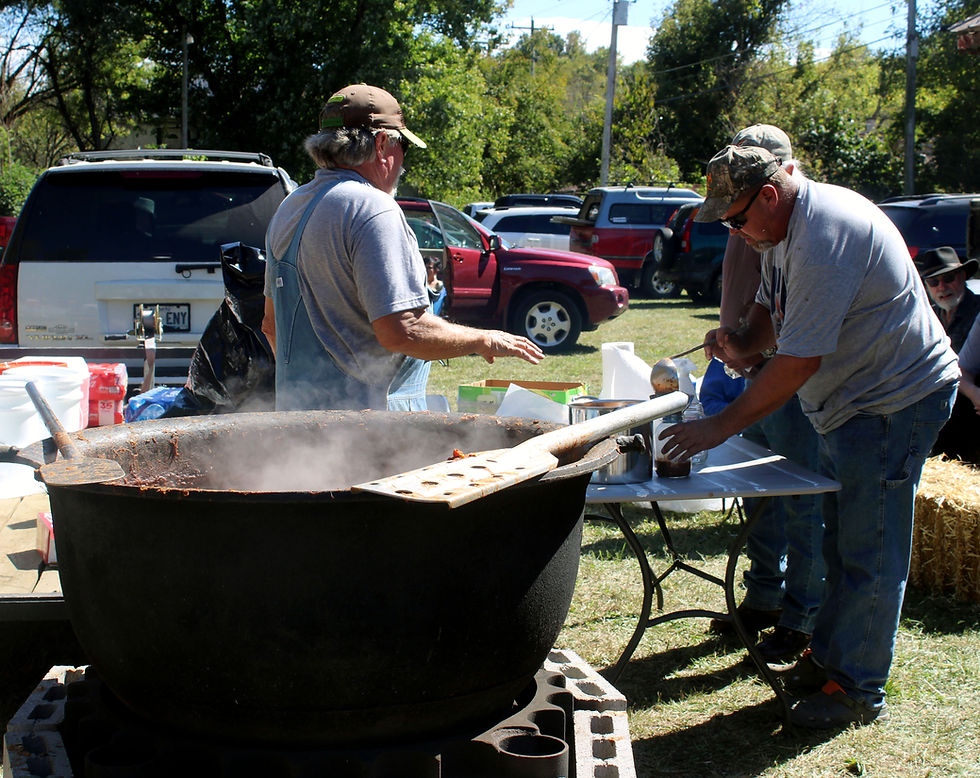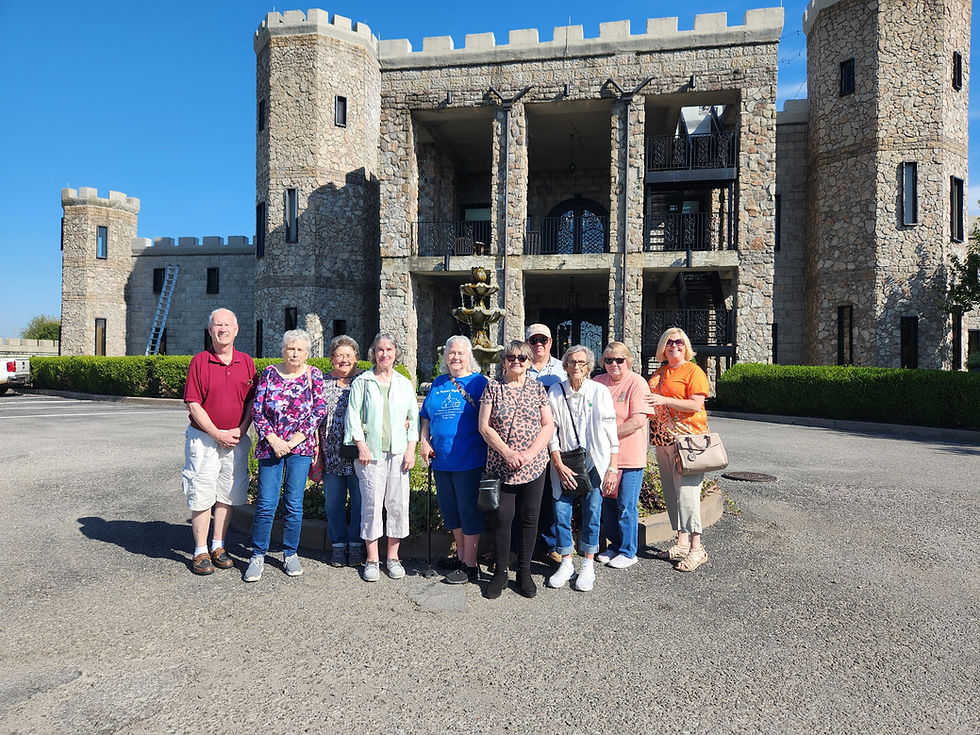Stirring the pot
- Sep 16, 2024
- 3 min read
Monterey Homecoming Fair's burgoo tradition unites a community
BY MOLLY HAINES RIDDLE
Sweet Owen Editor

Every other October, as the crisp air settles over the small village of Monterey, Kentucky, the familiar scent of burgoo wafts through the streets, signaling the beginning of a cherished local tradition. The scene is one of community and history, where cast iron kettles bubble with a rich, smoky stew, and townsfolk gather to reminisce about days gone by. This is the Monterey Fair, a celebration that has become a touchstone for the area, connecting past and present in a way few events can.
The origins of the fair are rooted in the community's rich history. Monterey was once known as Williamsburg, located on the banks of Cedar Creek, with direct access to the Kentucky River. In the 19th century, it was a bustling trade hub where agricultural goods were loaded onto flatbeds and keelboats destined for markets as far away as Louisville and New Orleans. The town was officially renamed Monterey in 1847 in honor of the Mexican-American War's Battle of Monterrey. By the late 1800s, Monterey was a thriving community with a downtown district that included a post office, hotels, grist mills, blacksmith shops, and the W.D. Hardin Dry Goods Store—the first building in Owen County to have an elevator.
However, the town's fortunes would take a turn for the worse. A series of catastrophic floods and fires decimated many of these early structures. By 1970, Monterey's population had shrunk by nearly half. In 1969, the closure of the town's post office, the second-largest in Owen County, marked another blow, signaling what many feared would be the final decline of this once-vibrant community.
But Monterey was not destined to fade away. In the early 1970s, a renaissance of sorts began when a group of artists and craftspeople discovered the charm of the small, almost forgotten town. Led by James "Jimmy Clark" Hudson, a journalist turned attorney who had grown up on Monterey's Point of Rock Road, this eclectic group saw the potential in Monterey's vacant houses and historic buildings. Hudson, who had returned to his family farm after earning a law degree, found Monterey to be the perfect setting for those seeking a simpler, more meaningful life.
"He found all these cheap houses, which, of course, didn't have running water; they didn't have anything in them," recalled Dara Carlisle in 2022.
Hudson and his friends were soon followed by others, including Gray Zeitz, who would open Larkspur Press, and Paula Nye, who started the Jubilee Candle Shop. These new residents began to establish businesses that would revitalize the town. In 1976, they decided to organize the first Monterey Fair as a way to bring the community together and share their crafts with a broader audience.
The fair was a resounding success. Held Aug. 7-8, 1976, it featured a range of activities, from bookbinding demonstrations by Zeitz to a burgoo supper prepared by Scott Ballard. Traditional children's games like sack races and turtle races were also part of the fun, and the fair ended with a street dance featuring the Progress Red Hot String Band and cloggers from Berea. The event was so popular that it quickly became a biennial tradition, moving to October to accommodate the local farming community's schedule.
The burgoo, a hearty stew that has become synonymous with the Monterey Fair, is a tradition the New family has carried forward since the early 1980s. David New, who took over the preparation of the burgoo from local figures like Ballard and Stoney Spicer, became a fixture at the fair, stirring the massive 60-gallon kettle with care and pride. "People came from everywhere to eat burgoo," recalls New's wife, Barbara. "It would be gone within two hours. There'd be a line all the way through town."

David New passed away in 2014, but not before passing the burgoo paddle—and the tradition—on to his nephew, Colby New. Colby continues to lead the effort today, making 60 to 80 gallons of burgoo each time, depending on the expected turnout. The preparation begins long before dawn, with vegetables cut and meat prepared under the stars, all following a family recipe that gives the stew its distinctive smoky flavor.
As the fair has grown over the years, it has faced its share of challenges, including the dissolution of the town's official government, which has led to more red tape and logistical hurdles. Yet, the spirit of the event remains unchanged. "We want to keep it like it was," David's daughter, Vanessa, said. "We're trying to bring back traditions like decorating bikes for the parade, which was a big deal when we were kids."
The Monterey Fair continues to be a celebration of community, history, and resilience. This year's fair is slated for Saturday, Oct. 5, and will include favorite events such as the parade, old-fashioned games, handmade crafts and wares, food, music, and more. For more information, visit https://www.facebook.com/events/910415544076008.




Comments